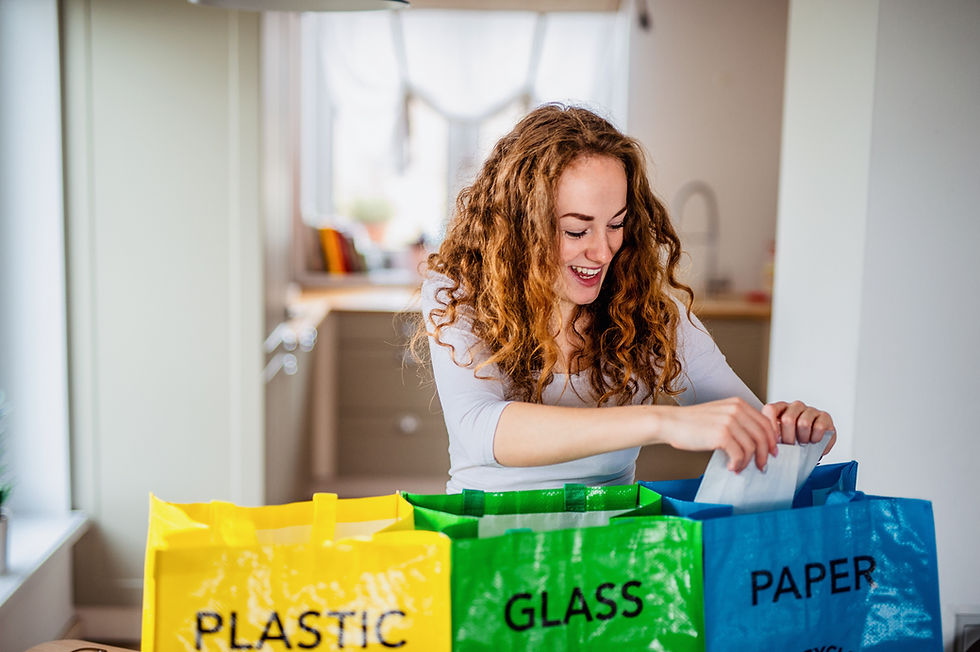New analysis has found that 5.6 million tonnes of packaging waste was binned by households last year, as councils call on new reforms to reduce packaging and make it easier to recycle.
The study, commissioned by the Local Government Association (LGA), County Councils Network (CCN), and District Councils Network (DCN), found that:
3.2 million tonnes of packaging was put into recycling bins;
2.3 million tonnes was put into residual, or ‘black’ bins;
70,000 tonnes was mistakenly put in food waste.
It is being published as councillors, politicians and organisations debate how to reform waste services to achieve a zero waste society at the LGA’s Annual Conference.
New reforms – called the packaging Extended Producer Responsibility scheme – will require industry to pay for the processing of packaging waste by councils from 2026, alongside proposals to change how councils collect waste from homes.
Councils are urging the government to ensure that reforms focus on reducing unnecessary waste created in the first place and increasing the recyclability of packaging.

Councils need to receive the full actual costs for delivering local waste and recycling services rather than estimates and call on the government to review the decision to significantly reduce fees facing the packaging industry to ensure that they meet the full costs facing councils. Investment in local waste reduction programmes is also essential to help councils tackle waste more effectively and sustainably.
Recyclable waste that goes in the wrong bins costs councils more to treat and also creates more emissions. These extra costs are unlikely to be met by the payments from the pEPR scheme, placing additional financial pressure on local authorities.
Councils are calling for clearer labelling on packaging to help households dispose of waste correctly.
Polling commissioned by the LGA, conducted by YouGov, found that the public are 12 times more likely to think costs in reducing packaging should be met by companies producing it (48%) rather than councils dealing with it (4%). Additionally, 85% of people think companies should be required by the government to reduce the amount of packaging used.
Councillor Adam Hug, environment spokesperson for the LGA, said: ‘Good packaging is essential for keeping products fresh and intact, and producers are doing more to reduce waste and support recycling. But everybody can see the levels of waste, across our shop shelves, delivered to our homes, and into our bins.
‘We support reforms that move the costs for dealing with packaging waste from councils onto the producers. However, it is crucial that the costs are met, that councils continue to lead local waste and recycling services, and that the focus is on reducing unnecessary waste in the first place.’
Councillor Richard Clewer, infrastructure and planning spokesperson for the County Councils Network, said: ‘The County Councils Network supports the Extended Producer Responsibility scheme, particularly its overall aim to reduce residual waste. As this research has shown, a significant amount of recyclable waste still ends up in the wrong bin despite the best efforts of local authorities.
The government must ensure that recyclable waste that is placed into incorrect bins is taken into consideration when calculating the amount that councils will get paid through the EPR scheme. At a time when they are under immense financial pressures, councils should not be penalised, and producers of packaging must do more to ensure that packing ends up in the correct bin.’
Councillor Andy Graham, environment spokesperson for the District Councils’ Network, said: ‘District councils have engaged with our communities to reduce waste and recycle more resulting in high rates of recycling. However, councils can only do so much. Our residents overwhelmingly want less unnecessary packaging on what they buy and as councils we would like to see more recycled material used in the packaging that is produced.
‘There has been a dramatic shift towards online shopping in recent years and our councils tell us that this has resulted in ever greater quantities of packaging, much of which is difficult to recycle. This both causes unnecessary environmental harm and heaps cost onto councils.
‘Extended Producer Responsibility must ensure that it is packaging producers – and not local taxpayers – who are paying for treating packaging waste.’


Comments